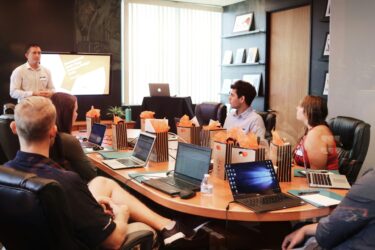Technology has done a lot for people with disabilities, from 3D Printing of artificial limbs to the developing stabilizing spoons for people with Parkinson’s, but their opportunities to work in the industry are lacking.
A recent report by the American Association of People with Disabilities (AAPD) revealed that despite a 32 percent increase in businesses hiring people with disabilities, one sector of the workforce seems to be falling behind. Whilst Starbucks and Microsoft are featured on the list, the likes of Google, Facebook, and Uber were notably absent.
There could be many reasons for this. Unconscious bias, or the general ignorance of employers, particularly if the candidate doesn’t display any physical signs of disability.
It could also be due with companies feeling unsure about potential health insurance costs.
There are, however, several companies who partner with local advocacy groups to increase opportunities via internship programmes. Despite its absence from AAPD’s report, Google does in fact work with non-profit agencies to recruit and hire students with disabilities for full time work. This program is called TechAbility.
Also, a Danish startup, Specialisterne, works to enable one million jobs for people on the autism spectrum, or other challenges through social entrepreneurship and corporate sector engagement. They have locations all over the world, including Australia, Brazil, Canada, and Spain.
Specialisterne’s website states, “We harness the special characteristics and talents of people with autism and use them as a competitive advantage.”
If there’s one thing technology does better than anything else, it is providing solutions for things that never seemed possible.

Saswat Swain, Senior Technology Architect at Accenture
Take Saswat Swain, for example. Born with a genetic condition that causes brittle bones, he spent his childhood being carried to and from school by his father. Now, he is a technology architect and associate manager at Accenture.
Despite being confined to a wheelchair, he was given the chance to prove himself and it could not have worked out better for either him or the company.
We also find many people with both physical and mental disabilities who have taken charge of their own businesses. It’s all about giving people a chance to prove themselves. Some companies who have done this have even written about the positive impact it has had on them.
The Entrepreneurs with Disabilities Network is a Canadian resource that looks to aid individuals with disabilities to start their own business, and has been doing so since 1995, helping hundreds of people develop and grow their business. With the opportunities for literally anybody to start their own business nowadays, this could be more important than ever.
This is of course, just one example. Other resources include Getting Hired, and Trade Schools which have sections where disabled applicants can search for jobs available to them.












